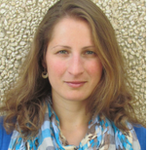Invited International Participants
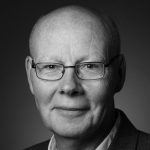 Rainer Bromme is Professor for Educational Psychology at the University of Munster. His research interests include: Communication and trust between Science and the Public, the psychology of interdiscplinary work and the development of knowledge and understanding in Science and Mathematics.
Rainer Bromme is Professor for Educational Psychology at the University of Munster. His research interests include: Communication and trust between Science and the Public, the psychology of interdiscplinary work and the development of knowledge and understanding in Science and Mathematics.
Personal page, University of Münster, Germany
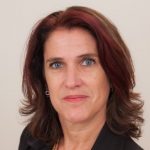 Dominique Brossard is professor and chair in the Department of Life Sciences Communication at the University of Wisconsin-Madison and an affiliate of the UW-Madison Robert & Jean Holtz Center for Science and Technology Studies, the UW-Madison Center for Global Studies and the Morgridge Institute for Research. Her teaching responsibilities include courses in strategic communication theory and research, with a focus on science and risk communication. Brossard’s research agenda focuses on the intersection between science, media and policy with the Science, Media and the Public (SCIMEP) research group, which she co-directs. A fellow of the American Association for the Advancement of Science and a former board member of the International Network of Public Communication of Science and Technology, Brossard is an internationally known expert in public opinion dynamics related to controversial scientific issues. She is particularly interested in understanding the role of values in shaping public attitudes and using cross-cultural analysis to understand these processes. SCIMEP’s recent work has focused on scientific discourse in online environments, such as Twitter. She has published numerous research articles in outlets such as Science, Science Communication, the International Journal of Public Opinion, Public Understanding of Science, and Communication Research and has been an expert panelist for the National Academy of Sciences on various occasions.
Dominique Brossard is professor and chair in the Department of Life Sciences Communication at the University of Wisconsin-Madison and an affiliate of the UW-Madison Robert & Jean Holtz Center for Science and Technology Studies, the UW-Madison Center for Global Studies and the Morgridge Institute for Research. Her teaching responsibilities include courses in strategic communication theory and research, with a focus on science and risk communication. Brossard’s research agenda focuses on the intersection between science, media and policy with the Science, Media and the Public (SCIMEP) research group, which she co-directs. A fellow of the American Association for the Advancement of Science and a former board member of the International Network of Public Communication of Science and Technology, Brossard is an internationally known expert in public opinion dynamics related to controversial scientific issues. She is particularly interested in understanding the role of values in shaping public attitudes and using cross-cultural analysis to understand these processes. SCIMEP’s recent work has focused on scientific discourse in online environments, such as Twitter. She has published numerous research articles in outlets such as Science, Science Communication, the International Journal of Public Opinion, Public Understanding of Science, and Communication Research and has been an expert panelist for the National Academy of Sciences on various occasions.
Personal page, University of Wisconsin–Madison, USA
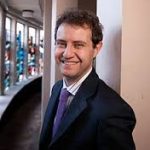 Massimiano Bucchi is Professor of Science and Technology in Society and of Science Communication at the University of Trento, Italy and has been visiting professor in academic and research institutions in Asia, Europe, North America and Oceania. He is the editor of the international peer reviewed journal Public Understanding of Science (Sage).
Massimiano Bucchi is Professor of Science and Technology in Society and of Science Communication at the University of Trento, Italy and has been visiting professor in academic and research institutions in Asia, Europe, North America and Oceania. He is the editor of the international peer reviewed journal Public Understanding of Science (Sage).
He has published several books (in Italy, Brazil, Finland, China, Korea, UK and USA, Spain and Latin America), including Science in Society (London and New York, Routledge, 2004), Beyond Technocracy (New York, Springer, 2009) Handbook of Public Communication of Science and Technology (ed. with B. Trench, London & New York, Routledge, 2014), the 4vols anthology The Public Communication of Science (London & New York, Routledge, 2016) and papers in journals such as Nature and Science. He is a regular contributor to cultural pages and science and technology supplements of newspapers (La Repubblica, La Stampa).
 Ilan Chabay is Head of Strategic Research Initiatives (“Incubator”) and International Fellowship Programs at the Institute for Advanced Sustainability Studies in Potsdam, Germany (iass-potsdam.de), where he has been since 2012, and Chair of the KLASICA international knowledge, learning, and societal change research alliance (www.KLASICA.org) also at IAAS. The mission of the KLASICA alliance, which Ilan co-founded, is to identify and understand the conditions under which collective behavior change (CBC) toward just and equitable sustainable futures occurs or fails to occur in different spatial and temporal scales and contexts and to use that understanding to advance solutions for and catalyze actions on pathways to sustainable futures.
Ilan Chabay is Head of Strategic Research Initiatives (“Incubator”) and International Fellowship Programs at the Institute for Advanced Sustainability Studies in Potsdam, Germany (iass-potsdam.de), where he has been since 2012, and Chair of the KLASICA international knowledge, learning, and societal change research alliance (www.KLASICA.org) also at IAAS. The mission of the KLASICA alliance, which Ilan co-founded, is to identify and understand the conditions under which collective behavior change (CBC) toward just and equitable sustainable futures occurs or fails to occur in different spatial and temporal scales and contexts and to use that understanding to advance solutions for and catalyze actions on pathways to sustainable futures.
Ilan serves on the scientific advisory boards of several international programs on affordable energy for humanity, environmental systems research, and integrated risk governance. He collaborates with colleagues in Italy, Austria, and Denmark on multi-modal games for understanding social mediation of creativity and how it influences innovation for societal needs.
Ilan authored or co-authored over 60 peer-reviewed articles in major journals in both social science and natural science, as well as reports, book chapters, and three patents. While also a Senior Fellow at IASS, he was Professor in the Helmholtz Alliance Energy Trans program at Institute for Social Science (2012-2014) and Alcatel/Lucent Fellow (2014) in Communications Research, University of Stuttgart, Germany. He was Erna and Victor Hasselblad Professor in the sociology and applied IT departments in Gothenburg and Chalmers Universities, Sweden (2006-2011).
He was elected Honorary Member of the Swiss Academy of Humanities and Social Sciences in 2012, “in recognition of his manifold contributions to innovative forms for public understanding of science, as well as teaching and learning” and received the Alan B. Leviton Award of the AAAS in 1999 for “Outstanding achievement in the science education of children and youth.” The award cited the creativity, artistry, playfulness, and scientific integrity of Ilan’s work and his long-standing commitment to science education.
Ilan founded and directed the New Curiosity Shop, a workshop in Silicon Valley (1984-2001), where he led the design and production of interactive exhibitions and learning experiences for more than 230 museums, science centres, and corporations worldwide, including Disney Imagineering, and led educational projects for NASA. He was Associate Director of the Exploratorium Science Museum in San Francisco (1982-83), consulting professor of chemistry at Stanford (1984-88), and after receiving his Ph.D. in chemical physics from the Univ. of Chicago, he led research on non-linear optical spectroscopy at the National Institutes of Standards and Technology (1974-82), and has been a visiting professor in academic institutions in the US, Japan, India, and UK.
Personal page, Institute for Advanced Sustainability Studies, Germany
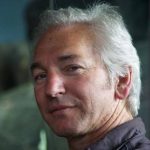 Professor Lloyd Spencer Davis is a Stuart Professor of Science Communication and the Director of The Centre for Science Communication at the University of Otago. Lloyd is an internationally recognized scientist, as well as an award-winning author and filmmaker. After gaining a 1st Class BSc(Hons) degree from Victoria University of Wellington, he was awarded a Commonwealth Scholarship to study for his PhD at the University of Alberta in Canada. Currently the inaugural Stuart Professor of Science Communication at the University of Otago, he has authored over 125 scientific publications on the behaviour and ecology of birds and mammals. He is regarded as a world authority on penguins and academic honours bestowed upon him have included a Fulbright Fellowship, an Anzac Fellowship and a Prince and Princess of Wales Science Award. However, he is also an award-winning writer, photographer and filmmaker.
Professor Lloyd Spencer Davis is a Stuart Professor of Science Communication and the Director of The Centre for Science Communication at the University of Otago. Lloyd is an internationally recognized scientist, as well as an award-winning author and filmmaker. After gaining a 1st Class BSc(Hons) degree from Victoria University of Wellington, he was awarded a Commonwealth Scholarship to study for his PhD at the University of Alberta in Canada. Currently the inaugural Stuart Professor of Science Communication at the University of Otago, he has authored over 125 scientific publications on the behaviour and ecology of birds and mammals. He is regarded as a world authority on penguins and academic honours bestowed upon him have included a Fulbright Fellowship, an Anzac Fellowship and a Prince and Princess of Wales Science Award. However, he is also an award-winning writer, photographer and filmmaker.
Personal page, University of Otago, New Zealand
 Noah Weeth Feinstein is Associate Professor in the departments of Curriculum & Instruction and Community & Environmental Sociology at the University of Wisconsin- Madison. He studies how people understand and use science as they confront health and sustainability challenges in their personal, social, and political lives. Professor Weeth Feinstein recently contributed to a new National Academies report on science literacy, and is currently studying how science museums work to become more equitable institutions.
Noah Weeth Feinstein is Associate Professor in the departments of Curriculum & Instruction and Community & Environmental Sociology at the University of Wisconsin- Madison. He studies how people understand and use science as they confront health and sustainability challenges in their personal, social, and political lives. Professor Weeth Feinstein recently contributed to a new National Academies report on science literacy, and is currently studying how science museums work to become more equitable institutions.
Personal page, University of Wisconsin–Madison, USA
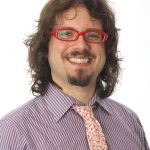 Dr Eric Jensen has two main research specialisms: Public engagement, and media. He also contributes to the development of impact evaluation methodology and social change theory. His research on the impacts of public engagement cuts across a wide range of settings, from zoos to conservation training programmes to museums (e.g. Natural History Museum, University of Cambridge Museums) to festivals (e.g. Cambridge Science Festival and the Cheltenham Festivals).
Dr Eric Jensen has two main research specialisms: Public engagement, and media. He also contributes to the development of impact evaluation methodology and social change theory. His research on the impacts of public engagement cuts across a wide range of settings, from zoos to conservation training programmes to museums (e.g. Natural History Museum, University of Cambridge Museums) to festivals (e.g. Cambridge Science Festival and the Cheltenham Festivals).
Personal page, University of Warwick, UK
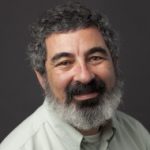 Professor Bruce Lewenstein is a professor of science communication at Cornell University. He is currently serving as chair of the Department of Science & Technology Studies. He is also a full member of the Department of Communication. He is a faculty-elected member of Cornell’s Board of Trustees (2016-2020).
Professor Bruce Lewenstein is a professor of science communication at Cornell University. He is currently serving as chair of the Department of Science & Technology Studies. He is also a full member of the Department of Communication. He is a faculty-elected member of Cornell’s Board of Trustees (2016-2020).
His projects—whether teaching, research, or public outreach—all involve public communication of science and technology (PCST), also known as “public understanding of science,” “popularization of science,” “popular science,” “vulgarisation” [in French], “divulgacion” [in Spanish], “culture scientifique” [French again], “apropiacion social” [Spanish again], “scientific temper” [written into the Indian constitution], etc. In general, He tries to document to the ways that public communication of science is fundamental to the process of producing reliable knowledge about the natural world.
Personal page, Cornell University, USA
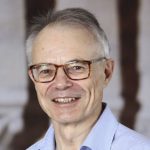 Jonathan Osborne is Kamalachari Professor of Science Education at Stanford University, and the Chair of the OECD PISA Science Expert Group. His research interests include Classroom Dynamics, Curriculum and Instruction, Science Education, and Women in Science.
Jonathan Osborne is Kamalachari Professor of Science Education at Stanford University, and the Chair of the OECD PISA Science Expert Group. His research interests include Classroom Dynamics, Curriculum and Instruction, Science Education, and Women in Science.
Personal page, Stanford University, USA
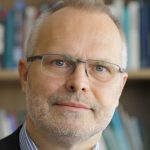 Prof. Dr. Hans Peter Peters is a social scientist at the Research Center Jülich and Adjunct Professor of Science Journalism at the Free University of Berlin. His scientific interests are in the domain of Public Communication of Science and Technology (PCST) and Public Understanding of Science with an emphasis on empirical research and international comparisons. Most of his research has dealt with public perception, public attitudes and public communication about nuclear power, climate change, genetic engineering, biomedicine and neuroscience. A particular focus was on scientists as media sources and public communicators – and on their role as “public experts” in environmental and risk issues.
Prof. Dr. Hans Peter Peters is a social scientist at the Research Center Jülich and Adjunct Professor of Science Journalism at the Free University of Berlin. His scientific interests are in the domain of Public Communication of Science and Technology (PCST) and Public Understanding of Science with an emphasis on empirical research and international comparisons. Most of his research has dealt with public perception, public attitudes and public communication about nuclear power, climate change, genetic engineering, biomedicine and neuroscience. A particular focus was on scientists as media sources and public communicators – and on their role as “public experts” in environmental and risk issues.
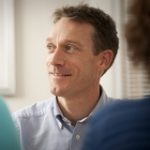 Professor Jim Ryder is the Editor of the international research review journal Studies in Science Education, and Secretary of the European Science Education Research Association (ESERA). He is also a Fellow of the Institute of Physics. At the University of Leeds he is the Director of the Centre for Studies in Science and Mathematics Education (CSSME), and Leader of the Teaching and Learning Academic Group. His research examines attempts to develop a school science education that supports people’s engagement with science outside of formal schooling. This includes a focus on teaching and learning about the ‘nature of science’.
Professor Jim Ryder is the Editor of the international research review journal Studies in Science Education, and Secretary of the European Science Education Research Association (ESERA). He is also a Fellow of the Institute of Physics. At the University of Leeds he is the Director of the Centre for Studies in Science and Mathematics Education (CSSME), and Leader of the Teaching and Learning Academic Group. His research examines attempts to develop a school science education that supports people’s engagement with science outside of formal schooling. This includes a focus on teaching and learning about the ‘nature of science’.
Personal page, University of Leeds, UK
Participants
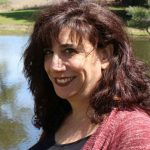 Avital Baer is the Director of Media and Public Relations and Spokesperson of the Israel Academy of Sciences and Humanities. She has been with the Academy since 2001 where she leads both press relations and public engagement activities, as well as the new growing field of Science Communication in Israel.
Avital Baer is the Director of Media and Public Relations and Spokesperson of the Israel Academy of Sciences and Humanities. She has been with the Academy since 2001 where she leads both press relations and public engagement activities, as well as the new growing field of Science Communication in Israel.
In her capacity at the Academy, Avital edits the periodic publications such as the annual report and the magazine and the Academy’s official websites.
She holds a Masters of Journalism and Communication from the Hebrew University in Jerusalem and a certificate of Integrated Marketing Communications from Berkeley extension, CA.
Previously, Avital served as Director of Communications at the Ministry of Industry and Trade as well as for Yad Vashem, Israel National Holocaust Memorial Institute. In the last two decades she has focused on Science Communication serving as the Spokesperson of the Hebrew University in Jerusalem and the Academy.
She won Israel’s National PR prize in 2011 both in the category of Education and Science as well as the general first prize for her campaign on “Dead Sea Deepest Sea Drilling for Science and Peace”.
Avital initiated and Co-chairs the Israeli Science Communication Conference and the Israel Academy Forum for Science Communication which serves as an official committee at the Academy, which explores the role of science in Israeli public discourse.
Since 2012 she is Israel’s representative in the EPPCN – European Particle Physics Communications Network which includes the 21 member states of CERN.
 Ayelet Baram-Tsabari is an Associate Professor at the Faculty of Education in Science and Technology at the Technion – Israel Institute of Technology, and head of the Biology Education and Science Communication research groups. She earned her B.Sc. at Tel Aviv University and her Ph.D at the Weizmann Institute of Science, and was a Visiting Scholar at Cornell University (2010-2011).
Ayelet Baram-Tsabari is an Associate Professor at the Faculty of Education in Science and Technology at the Technion – Israel Institute of Technology, and head of the Biology Education and Science Communication research groups. She earned her B.Sc. at Tel Aviv University and her Ph.D at the Weizmann Institute of Science, and was a Visiting Scholar at Cornell University (2010-2011).
Assoc. Prof. Baram-Tsabari is a member of the Learning in a Networked Society (LINKS) Israeli Center of Research Excellence (I-CORE). She is the founder of the Israeli Science Communication Conference series and currently the chair of the conference’s academic committee. She is a member of the PCST Network scientific committee and of the Israel Young Academy, and the chair of the research committee at the council of the Second Authority for Television and Radio, the public authority that supervises commercial broadcasting in Israel. She is the recipient of the Yanai Prize for Excellence in Academic Education (2015).
Her research interests include: Bridging science education and science communication scholarship; Identifying people’s interests in science; Building on these authentic interests to teach and communicate science in more meaningful and personally relevant ways.
Personal site, Technion – Israel Institute of Technology, Israel
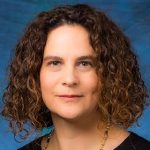 I am a lecturer (assistant professor) at the Department of Learning, Instruction and Teacher Education at the University of Haifa’s Faculty of Education. My primary research interests focus on learners’ epistemic thinking (i.e. thinking about knowledge and knowing) and digital literacy. I am particularly interested in studying learners’ epistemic thinking in digital media contexts such as learning from multiple online information sources and from digital games. My research examines how learners’ metacognitive understandings of the nature of knowledge and knowing come into play when they engage in tasks such as evaluating and integrating conflicting information sources and reasoning about epistemic disagreement. I also engage, together with practitioner partners, in designing and testing curricula and scaffolds for promoting learners’ epistemic thinking in order to better understand the trajectories and mechanisms of epistemic growth.
I am a lecturer (assistant professor) at the Department of Learning, Instruction and Teacher Education at the University of Haifa’s Faculty of Education. My primary research interests focus on learners’ epistemic thinking (i.e. thinking about knowledge and knowing) and digital literacy. I am particularly interested in studying learners’ epistemic thinking in digital media contexts such as learning from multiple online information sources and from digital games. My research examines how learners’ metacognitive understandings of the nature of knowledge and knowing come into play when they engage in tasks such as evaluating and integrating conflicting information sources and reasoning about epistemic disagreement. I also engage, together with practitioner partners, in designing and testing curricula and scaffolds for promoting learners’ epistemic thinking in order to better understand the trajectories and mechanisms of epistemic growth.
Personal site, University of Haifa, Israel
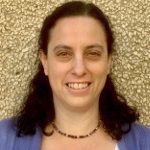 Personal page, Technion – Israel Institute of Technology, Israel
Personal page, Technion – Israel Institute of Technology, Israel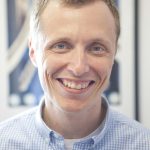 Dr. Davidson studies the intersection of economics and media from both institutional and textual perspectives. He examines the experience of working within the culture industries (e.g., journalism, television) as well as the representation of economic life in journalism. He received his BA from Tel Aviv University, his MSc from the London School of Economics and his PhD from the University of Michigan. His work has been funded by the Israel Science Foundation (with Dr. Oren Meyers) and the German-Israel Foundation. In 2013, he co-organized (with Dr. Oren Meyers) an ISF-funded international research workshop on work in the culture industries. Recently, he has been studying the crowdfunding of culture here and in the United States (with Dr. Nat Poor).
Dr. Davidson studies the intersection of economics and media from both institutional and textual perspectives. He examines the experience of working within the culture industries (e.g., journalism, television) as well as the representation of economic life in journalism. He received his BA from Tel Aviv University, his MSc from the London School of Economics and his PhD from the University of Michigan. His work has been funded by the Israel Science Foundation (with Dr. Oren Meyers) and the German-Israel Foundation. In 2013, he co-organized (with Dr. Oren Meyers) an ISF-funded international research workshop on work in the culture industries. Recently, he has been studying the crowdfunding of culture here and in the United States (with Dr. Nat Poor).
Personal page, University of Haifa, Israel
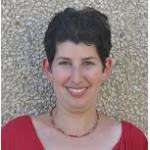 Personal page, Technion – Israel Institute of Technology, Israel
Personal page, Technion – Israel Institute of Technology, Israel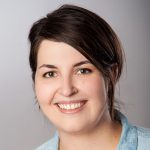 Friederike Hendriks is a postdoctoral research fellow at the Institute for Psychology in Education and Instruction at the University of Münster, Germany. Her research interests include laypeople’s epistemic trust, and knowledge about science when dealing with science information (online).
Friederike Hendriks is a postdoctoral research fellow at the Institute for Psychology in Education and Instruction at the University of Münster, Germany. Her research interests include laypeople’s epistemic trust, and knowledge about science when dealing with science information (online).
Personal page, University of Münster, Germany
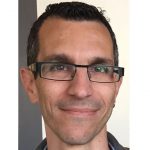 Arnon Hershkovitz is a Senior Lecturer in Tel Aviv University’s School of Education. In recent years, he has been studied the role social networking sites play in learning and teaching. His other stream of research is Learning Analytics. He holds a Ph.D. in Science Teaching (Tel Aviv University), an M.A. in Applied Mathematics, and a B.A. in Mathematics and Computer Science (both from the Technion – Israel Institute of Technology). He is a proud father of four boys, an expert genealogist, and a passionate cook.
Arnon Hershkovitz is a Senior Lecturer in Tel Aviv University’s School of Education. In recent years, he has been studied the role social networking sites play in learning and teaching. His other stream of research is Learning Analytics. He holds a Ph.D. in Science Teaching (Tel Aviv University), an M.A. in Applied Mathematics, and a B.A. in Mathematics and Computer Science (both from the Technion – Israel Institute of Technology). He is a proud father of four boys, an expert genealogist, and a passionate cook.
Personal site, Tel Aviv University, Israel
 Avner Kantor is a research fellow at the Center for Interenet Research at the University of Haifa.
Avner Kantor is a research fellow at the Center for Interenet Research at the University of Haifa.
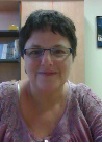 Shulamit (Shuly) Kapon is an assistant professor at the Faculty of Education in Science and Technology at the Technion – Israel Institute of Technology. Dr. Kapon heads the faculty’s physics education track, and the Meaningful Disciplinary-Based Learning research group. She studies learning processes of students and teachers in which they gradually change the way they interpret situations and phenomena in the physical world, adapt, appropriate and start to think independently through and with disciplinary-based models and representations, and appropriate disciplinary norms and habits of mind. Dr. Kapon also develops curricula and instructional patterns, and conducts design-based studies of teacher education that foster such instruction.
Shulamit (Shuly) Kapon is an assistant professor at the Faculty of Education in Science and Technology at the Technion – Israel Institute of Technology. Dr. Kapon heads the faculty’s physics education track, and the Meaningful Disciplinary-Based Learning research group. She studies learning processes of students and teachers in which they gradually change the way they interpret situations and phenomena in the physical world, adapt, appropriate and start to think independently through and with disciplinary-based models and representations, and appropriate disciplinary norms and habits of mind. Dr. Kapon also develops curricula and instructional patterns, and conducts design-based studies of teacher education that foster such instruction.
Personal site, Technion – Israel Institute of Technology, Israel
 Dr. Elon Langbeheim is a senior intern at the Department of Science Teaching at Weizmann Institute of Science. He earned his Ph.D. in Science Teaching at the Weizmann Institute of Science, earned the presidential postdoctoral fellowship at the University of Haifa and completed a second post-doctoral fellowship at the Mary Lou Fulton teachers college of Arizona State University.
Dr. Elon Langbeheim is a senior intern at the Department of Science Teaching at Weizmann Institute of Science. He earned his Ph.D. in Science Teaching at the Weizmann Institute of Science, earned the presidential postdoctoral fellowship at the University of Haifa and completed a second post-doctoral fellowship at the Mary Lou Fulton teachers college of Arizona State University.
His interests are in constructing computational models with high school students through project-based learning, developing technological and conceptual tools for learning about the Particle Model of Matter and evaluating learning of Sustainable Energy Topics.
Personal site, Weizmann Institute of Science, Israel
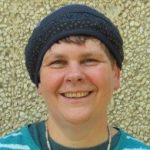 Esti Laslo received her Ph.D. from the Faculty of Education in Science and Technology at the Technion. Her research, under the guidance of Assoc. Prof. Ayelet Baram Tsabari, dealt with bioethics in the media, and examined the scientific and ethical tools used by the public, addressing realistic controversial issues at the intersection between science and ethics. She holds a B.Sc. in Biology from the Hebrew University and an M.Sc. in Neurobiology from the Hadassah Medical School of the Hebrew University, Jerusalem.
Esti Laslo received her Ph.D. from the Faculty of Education in Science and Technology at the Technion. Her research, under the guidance of Assoc. Prof. Ayelet Baram Tsabari, dealt with bioethics in the media, and examined the scientific and ethical tools used by the public, addressing realistic controversial issues at the intersection between science and ethics. She holds a B.Sc. in Biology from the Hebrew University and an M.Sc. in Neurobiology from the Hadassah Medical School of the Hebrew University, Jerusalem.
Laslo is a faculty member in the Department of Medical Laboratory Sciences at the Zefat Academic College, and is developing a high school microbiology textbook at the Technion. She has been teaching biology and training biology teachers for many years.
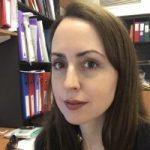 Nehama Lewis received her B.A. (2002) and M.A. (2006) from the Hebrew University and an M.A. (2008) and Ph.D. (2010) from the Annenberg School for Communication at the University of Pennsylvania. Her research interests focus on health communication, message and campaign effects and persuasion. Her articles have been published in leading communication journals including the Journal of Communication, Journal of Health Communication, Health Communication, as well as the Journal of Applied Social Psychology, and Science Communication.
Nehama Lewis received her B.A. (2002) and M.A. (2006) from the Hebrew University and an M.A. (2008) and Ph.D. (2010) from the Annenberg School for Communication at the University of Pennsylvania. Her research interests focus on health communication, message and campaign effects and persuasion. Her articles have been published in leading communication journals including the Journal of Communication, Journal of Health Communication, Health Communication, as well as the Journal of Applied Social Psychology, and Science Communication.
Personal page, University of Haifa, Israel
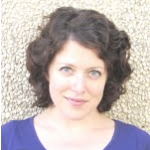 Personal page, Technion – Israel Institute of Technology, Israel
Personal page, Technion – Israel Institute of Technology, Israel Giuseppe Pellegrini (Ph.D., Sociology) is lecturer of Science and Public Engagement at the University of Padova. He is the President of Observa Science in Society and founder of the Italian Science and Technology Society. His current research focuses on public participation and science communication with specific regard to technoscientific issues and science education.
Giuseppe Pellegrini (Ph.D., Sociology) is lecturer of Science and Public Engagement at the University of Padova. He is the President of Observa Science in Society and founder of the Italian Science and Technology Society. His current research focuses on public participation and science communication with specific regard to technoscientific issues and science education.
Recent publications:
Pellegrini G. (2017), Climate change as a political challenge: a new vision of public engagement, in Fiorani L., Roman Z., Falcioni V., Geremia F., Relationality: between environmental awareness and societal challenges, ENEA, Roma.
Oliveira G., Bizzo N., Pellegrini G. (2016) Biological evolution and students: a comparative study in Brasil and Italy, Ciência & Educação, 22, 3, 689-705.
Personal page, University of Padova, Italy
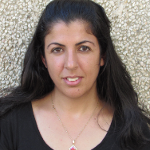 Personal page, Technion – Israel Institute of Technology, Israel
Personal page, Technion – Israel Institute of Technology, Israel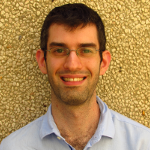 Aviv J. Sharon is a Ph.D. student at the Faculty of Education in Technology and Science at the Technion – Israel Institute of Technology. Aviv completed his M.Sc. in Life Sciences at the Weizmann Institute of Science and his undergraduate studies in Biology and Science Education (with distinction) at the Technion. He has also taught biology and biotechnology at a public high school in Haifa, Israel. His research interests lie in the interface between science education and science communication. More specifically, his work examines enactments of scientific literacy in authentic online environments, especially in the context of personal health. His work has appeared in Public Understanding of Science and PLOS One.
Aviv J. Sharon is a Ph.D. student at the Faculty of Education in Technology and Science at the Technion – Israel Institute of Technology. Aviv completed his M.Sc. in Life Sciences at the Weizmann Institute of Science and his undergraduate studies in Biology and Science Education (with distinction) at the Technion. He has also taught biology and biotechnology at a public high school in Haifa, Israel. His research interests lie in the interface between science education and science communication. More specifically, his work examines enactments of scientific literacy in authentic online environments, especially in the context of personal health. His work has appeared in Public Understanding of Science and PLOS One.Personal page, Technion – Israel Institute of Technology, Israel
Personal site
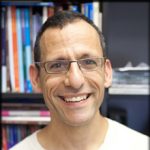 Yariv Tsfati (BA, 1997; MA 1999, University of Haifa) received his Ph.D. from the Annenberg School for Communication at the University of Pennsylvania (2001). His research focuses on various facets of public opinion, in particular on trust in media, the third person effect, and campaign effects. His research was funded by the Israel Science Foundation, the German-Israel Foundation, and other institutes. He received the Worcester Award for the year’s outstanding paper published in the International Journal of Public Opinion Research from WAPOR (2004). Tsfati co-organized a seminar on “Public Opinion, Communication and Elections” for the World Association for Public Opinion Research (2007), and an international research workshop on “The influence of Presumed Media Influence” (2005). He served as chair of the Political Communication Division of the International Communication Association, as editor for the International Journal of Public Opinion Research, and as Associate Editor for the Journal of Communication.
Yariv Tsfati (BA, 1997; MA 1999, University of Haifa) received his Ph.D. from the Annenberg School for Communication at the University of Pennsylvania (2001). His research focuses on various facets of public opinion, in particular on trust in media, the third person effect, and campaign effects. His research was funded by the Israel Science Foundation, the German-Israel Foundation, and other institutes. He received the Worcester Award for the year’s outstanding paper published in the International Journal of Public Opinion Research from WAPOR (2004). Tsfati co-organized a seminar on “Public Opinion, Communication and Elections” for the World Association for Public Opinion Research (2007), and an international research workshop on “The influence of Presumed Media Influence” (2005). He served as chair of the Political Communication Division of the International Communication Association, as editor for the International Journal of Public Opinion Research, and as Associate Editor for the Journal of Communication.
Personal page, University of Haifa, Israel
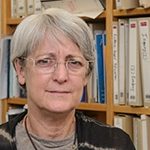 Professor Anat Yarden is Head of the Department of Science Teaching at the Weizmann Institute of Science, and Head of the Biology Group at this Department. The primary theme in all of her academic activities has been the attempt to adapt practices employed by scientists, to the processes by which students and teachers accumulate and advance their knowledge within the discipline of biology. Towards this end, her group pioneered the adaption of primary scientific literature for the teaching and learning of biology in high schools.
Professor Anat Yarden is Head of the Department of Science Teaching at the Weizmann Institute of Science, and Head of the Biology Group at this Department. The primary theme in all of her academic activities has been the attempt to adapt practices employed by scientists, to the processes by which students and teachers accumulate and advance their knowledge within the discipline of biology. Towards this end, her group pioneered the adaption of primary scientific literature for the teaching and learning of biology in high schools.
Personal page, Weizmann Institute of Science, Israel
